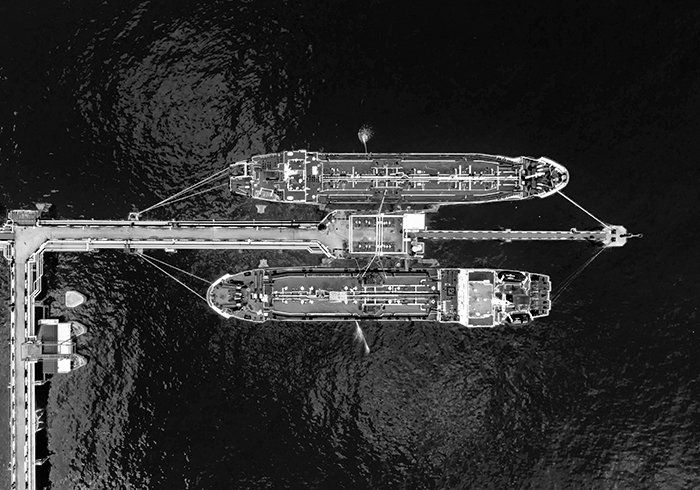The US government’s shift towards real-time sanctions enforcement for seaborne Iranian oil trade risks leaving banks and commodity traders exposed to high costs and gruelling litigation, researchers have said.
Compared to the financial sector, where sanctions breaches typically result in a fine from the Office of Foreign Assets Control (Ofac), the US has taken a more nimble approach to maritime enforcement, according to a paper published on July 22 by intelligence companies Pole Star Global and Blackstone Compliance Services.
The paper says government authorities have increasingly sought criminal prosecutions against shipping companies trading Iranian crude and petroleum products – a quicker process than Ofac pursuing an investigation before levelling a penalty.
It has also become “routine” for authorities to apply sanctions to vessels, port operators and other parties in real time if there is evidence they have interacted with Iranian oil, the companies say, as well as moving to seize cargoes while they are on the water.
For banks, traders and other companies caught in the crossfire, this approach can prove “horrendously expensive”, they warn.
“In many ways, finding out that a cargo is subject to sanctions mid-voyage is a greater economic risk than any subsequent Ofac penalty,” the paper says.
“In most cases, this means everyone loses. The traders take a loss for the value of the cargo and any demurrage or chartering fees, the shipowner is unable to charter their vessel, and the middlemen who failed to exercise due diligence can be left on the hook for millions in damages as all parties try to claw back their losses.”
The paper gives the example of a commodity trader that discovers it is holding Iranian oil on a vessel it had chartered.
The trader would be prohibited from selling the cargo under sanctions laws, meaning it would have to write off the transaction. It may later obtain an Ofac licence to sell the goods – if a willing buyer is found – but would have to pay demurrage charges in the meantime.
The vessel itself would also be sidelined throughout this process, while any bank that has provided financing “will also likely take a loss”.
“The legal costs for this can often be astronomical,” the paper says. “It’s not rare for those fees to approach or exceed US$1mn.”
Further complications come from subsequent litigation, as affected parties attempt to recover losses, adding further costs and delays.
For banks, lawsuits may arise if they are caught between an obligation to pay out under a letter of credit and the risk they may be facilitating sanctioned trade.
In 2023, a Singapore commodity trader won an appeal against JP Morgan after the bank declined payment for a US$2.4mn shipment of coal, because the court found there was insufficient proof the vessel used was under Syrian ownership.
Litigation can also be filed under the US’s Anti-Terrorism Act, which allows victims to sue companies that have provided support to designated foreign terrorist organisations.
The paper says there is “growing interest in pursuing such cases”, particularly since a February directive issued by President Donald Trump instructing the Attorney General to help victims of terrorism “collect on federal judgments against Iran”.
“Due to the nature in which Iran raises revenues, we believe there is a high probability that future lawsuits may be targeted at commodities traders, flag states, ship owners, charterers and port operators which deal with vessels carrying Iranian cargo,” Pole Star Global and Blackstone Compliance say.
The paper recommends companies involved in maritime trade screen vessel movements and ownership, including through the use of maritime intelligence tools, and says compliance staff should obtain and scrutinise original trade documentation for red flags.
As the threat of litigation grows, companies should also consider strengthening sanctions clauses in commercial contracts such as by introducing prohibitions on vessels that engage in deceptive practices, it says.








